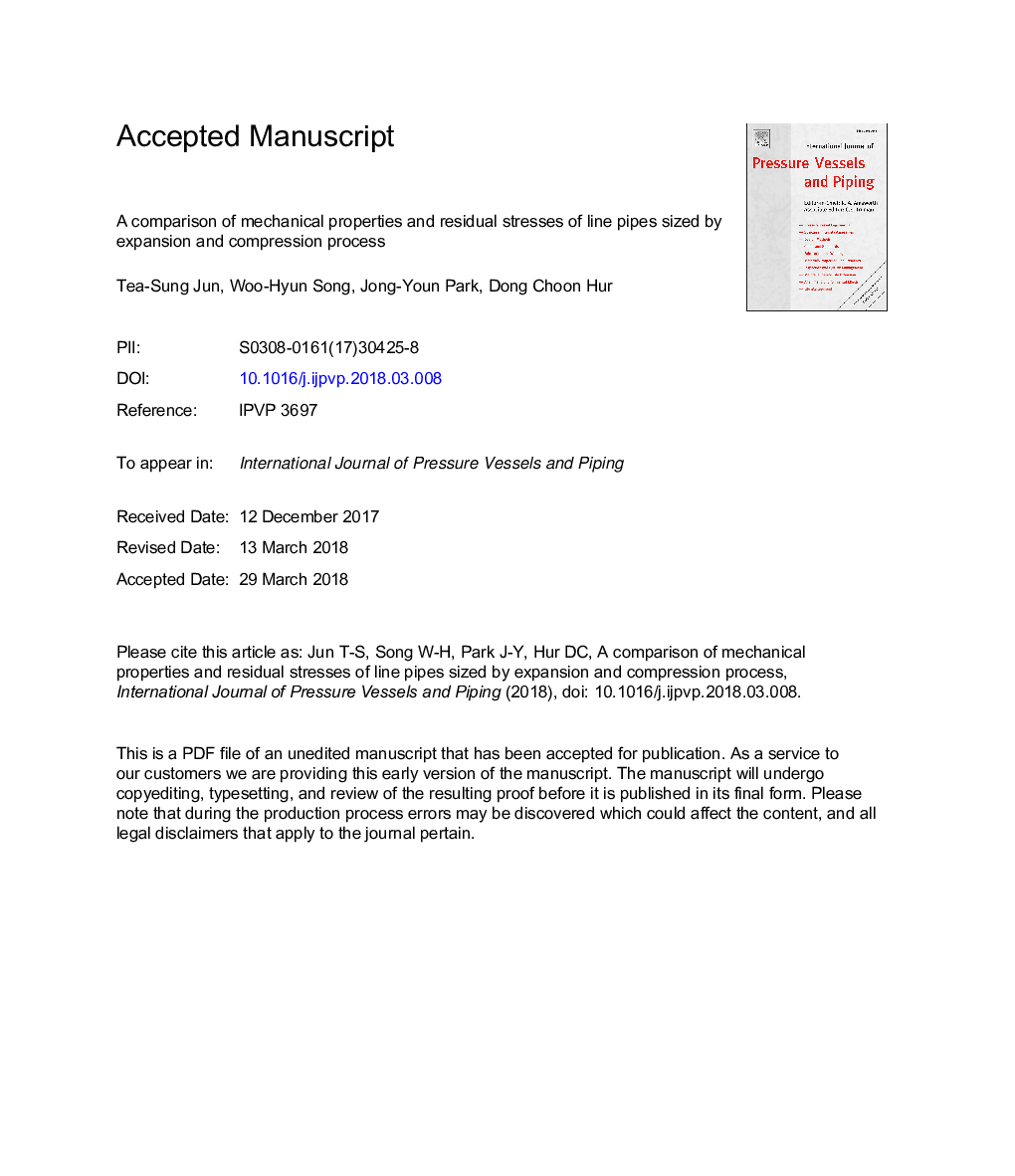| Article ID | Journal | Published Year | Pages | File Type |
|---|---|---|---|---|
| 7175043 | International Journal of Pressure Vessels and Piping | 2018 | 14 Pages |
Abstract
We have investigated and compared the mechanical properties and residual stress distributions in API-X70 pipes sized by expansion and compression processes with different sizing ratios. Various testing methods were applied to examine the target properties (i.e., hardness, yield-to-tensile ratio, drop weight tear test (DWTT) and crack tip opening displacement (CTOD)) which are critical design parameters in line pipe industries. Residual stresses were determined using a conventional hole drilling technique. The results show similar tensile strength and hardness distributions in both processes, whereas an opposite trend in the yield-to-tensile (Y/T) ratio was found where, in compressed pipes, the ratio was lowered. Fracture behaviour showed higher crack arresting and better fracture characteristic in the compression. Compared to the original pipe, residual stresses were considerably reduced in both processes, and in particular there were little or no residual stresses at a compression ratio of 0.3%. The effectiveness of the compression process over the expansion process is elucidated and discussed with respect to mechanical, economic and environmental aspects.
Related Topics
Physical Sciences and Engineering
Engineering
Mechanical Engineering
Authors
Tea-Sung Jun, Woo-Hyun Song, Jong-Youn Park, Dong Choon Hur,
